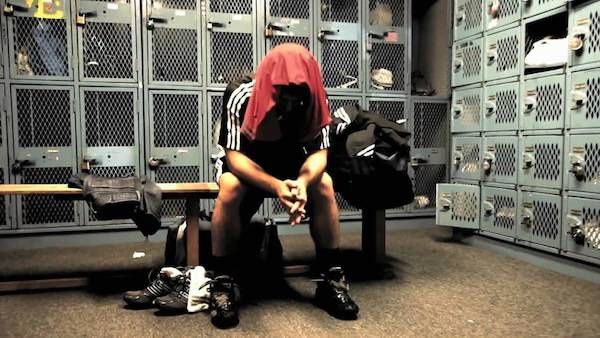Monday October 23rd, 2017
While my blogs tend to try and focus in the positive things that our sport is doing in the province of Quebec, sometimes there are things that aren’t as positive that are associated with not just with wrestling in the province, but sports as a whole. To act like they don’t exist or to not have an open dialogue about it is a travesty that has to be addressed. There is a serious side to doing sports and athletes will sometimes run through a whole gamut of emotions from the highest of highs to the lowest of lows during their athletic career. With that being said, the subject of depression in our society is a tricky one. Often there is a stigma attached to it and depression can sometimes be seen as a weakness amongst athletes. Yet athletes are people, and as such they are subject to all the same frailties as the rest of the population.
Athletes may be sometimes better equipped to handle depression since they are forced to cope with things such as defeat from time to time. In turn, athletes learn how to let go of the feelings associated with defeat and move on, always preparing for the next match or game while at the same time, trying to be at their best.
Athletes are placed on pedestals for their ability to thrill and entertain us. We hold them to a higher standard and at one point of time were considered to be viable role models for the youth of our society. This societal pressure can have adverse effects on the mental health of an athlete. At the same time, athletes will also put pressure on themselves, which can also lead to depression. In the sport of wrestling, where the pressure to perform is high coupled with the fact that it’s an individual sport, it’s difficult to wonder how more wrestlers don’t suffer from depression.

Wrestling is tough (image property of adidaswrestling.com)
Wrestling tournaments are hard, but the practices are also very tough. Joe Rogan, comedian, UFC commentator and Brazilian Jujitsu black belt has often stated that wrestling is one of the rare sports where the practices are sometimes harder than the actual tournaments. Again, pressure to perform is very high and the wear and tear both physically and mentally can take its toll.
But while we tend to look at the athletes that haven’t achieved their ambitions as the ones that are more likely to suffer from depression, we can’t forget the fact that that athletes that have achieved their life goals may also suffer as well. Olympic Gold Medallist Carol Huynh stated that after her win at the Beijing Olympics in 2008 she felt lost. Achieving that pinnacle of success added on a whole slew of pressure to her life that she wasn’t prepared for. Many athletes having achieved their goals often experience a void in that they feel that they have nothing left to try and go for, or that achieving that goal wasn’t nearly fulfilling as they thought it might be. The pinnacle of athletic achievement leaves many athletes’ hollow and that can also lead to depression.
As an athlete, I can say that these emotions were very real to me. I’ve experienced the highest of the highs and the lowest of the lows. Though I never achieved my athletic dream of becoming an Olympian, I think that the healthiest bit of advice that I can give to any athlete is that while you should try your best to attain your athletic dreams, take time to reflect on the accomplishments that you have achieved throughout your sporting career. Realize that thought you may feel hollow and that you haven’t attained your goals, there are perhaps a thousand people who would probably gladly trade places with you to achieve a fraction what you have done.
Wrestling: the highest of highs and the lowest of lows
This blog is dedicated to all the hard working athletes and coaches out there who are going through a tough period. Stay true to yourself, keep working hard and it will all work out in the end.
